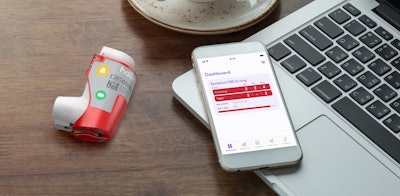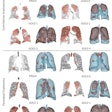
The first patient has been enrolled in a research partnership led by Australian-based respiratory eHealth company Adherium along with U.S. Intermountain Health and health care technology company CareCentra. Using Adherium’s Hailie sensors, the CareCentra artificial intelligence (AI) platform will monitor key physiological data in COPD and asthma patients.
The iCare study leverages Intermountain’s network of respiratory clinics, physicians and hospitals; CareCentra’s leading behavioral science and AI capabilities; and Adherium’s Hailie remote sensor technology — all aimed at providing a clinical assessment of the health and economic benefits of e-health management of chronic respiratory disease.
The trial will enroll 2,500 patients across five Intermountain facilities over two years. It will use Hailie sensors to provide real-time, remote data to the CareCentra AI, which will continuously monitor patient risk levels with a complex algorithm of data points, including signals of when and how patients are using prescribed inhaler medication from the Hailie device. The data points provided by the monitoring device will allow the CareCentra platform to assess health risk, recommend behavioral shifts in technique or adherence and, if problems persist, alert Intermountain Health for timely interventions and tailored treatments to improve health outcomes.
Hailie sensors monitor peak respiratory flow, inspiratory flow duration, inhaled volume and other metrics ensuring a patient’s prescribed medication effectively reaches their lungs.
CareCentra’s behavior-shaping platform and AI uses a range of data points, including expiratory flow rate, respiratory rate, oxygen saturation, heart rate, inspiratory flow rate and date/time stamps of medication adherence to monitor rising health risks and nudge both patients and respiratory care teams to control exacerbations and improve outcomes.
The iCare study’s goal is to leverage cutting edge digital health technology and respiratory biomarkers to identify rising risks and engage patients and providers in co-managing that risk, improving outcomes and reducing health care costs.
“Patients can struggle with their COPD and asthma and medication adherence more than we know,” said Peter Crossno, MD, PhD, Intermountain Health associate medical director for Pulmonary and Respiratory Care. “The iCare model … can be an early warning system and provide immediate feedback and trends to patients and their carers on adherence, inhaler technique, triggers and more.”























